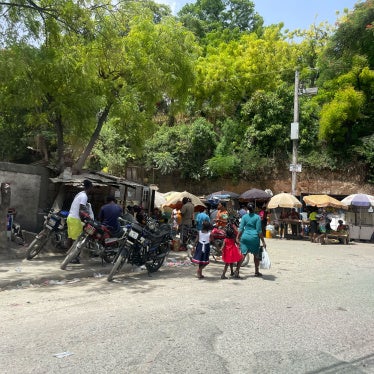Chile’s new constitutional text includes guarantees for a series of human rights, including the rights to equality, health, and education. But the text also includes an interpretation of the freedom of thought, conscience and religion that, according to the text, encompasses “the objection of conscience, which will be exercised in accordance with the law.”
The state must guarantee freedom of conscience but is equally obliged to ensure that it does not infringe upon the human rights of others. The way it is expressed in the draft creates a serious risk that protecting other rights, including to freedom of religion will become very difficult to guarantee in many cases. The text in the constitution does not establish limits to the use of conscientious objection, including necessary and proportionate restrictions to protect the human rights of others.
The International Covenant on Civil and Political Rights recognizes that actions performed to express religious freedom may be subject to limitations “prescribed by law” that are necessary to protect, among other things, “public health or morals, or the fundamental rights and freedoms of others.”
Without clear restrictions, anyone could invoke their freedom of thought to avoid complying with any legal obligation, even if the effect is discriminatory. And paradoxically the prevalence of religious freedom would also become an illusion, since one person could discriminate against another precisely because of their religious beliefs or moral convictions. Religious minorities may be particularly vulnerable. The possibilities of this resulting in the denial of services and discrimination in areas as diverse as health, education and employment, among others, are innumerable.
Educational institutions could use the constitutional text as a justification to oppose teaching certain content such as the theory of evolution or discussing in their classrooms essential historical facts to assess the protection of democracy and human rights such as genocide --(including the Holocaust, or coups d'état. They could also refuse to discuss ideas such as racism or religious persecution that are based on a lack of respect for other people. Those results would go against the purposes of education, such as inculcating respect for human rights and fundamental freedoms and the obligation to eliminate racial and other types of discrimination in all their forms, as prescribed by international treaties.
Relying on conscientious objection, health personnel could deny a girl the right to terminate a pregnancy resulting from rape. With the same argument, they could refuse to provide contraceptives or the morning-after pill, perform vasectomies or insert intrauterine devices. Pharmacies could refuse to sell contraceptives and condoms. It also opens the door for denying reproductive health services to unmarried women and men, or for health personnel to refuse to care for people based on their sexual orientation or gender identity.
Employers could refuse to hire people who live together without being married, fire single pregnant women or refuse to hire people because of their religious beliefs, sexual orientation, or gender identity.
Chile has made great progress in equality and non-discrimination. The unfettered constitutional protection for conscientious objection, however, could once again confront us with situations that had been legally overcome, such as discrimination against children born out of wedlock, bans on admitting boys and girls whose parents are divorced to school, or expelling girls for being pregnant.
Guaranteeing that everyone can exercise their human rights in a harmonious manner is an obligation of the State. Conscientious objection without clear limitations can make it impossible to protect the most basic rights in Chile.
Chileans will freely decide on December 17 if they accept this text. They should take into account the potential impact of this article on their human rights, along with s the more than 200 other articles that will define the bases for coexistence in the country.










